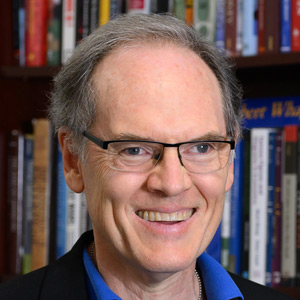Will our children and grandchildren live in a better world, or will economic and social conditions decline? Every culture has worried over this question—often for good reason. One would think that modern man, living amid ever-rising material comforts and a security unimagined by his ancestors, would have moved beyond this fear. But despite our growing prosperity there is a renewed fear in many quarters that we are living on borrowed time, because we’re running out of resources and endangering our very environment.
Once, economists would have been counted among the pessimists. The moniker “the dismal science” surely stuck for such a long time because so many economists followed the lead of Thomas Malthus, who predicted that population growth in the face of resource constraints would inevitably squelch hopes for a broad-based rise in standards of living. Today, however, there are strong indications that the fog of gloom among economists has evaporated. The evidence of more than two centuries of burgeoning economic growth worldwide is hard to refute, and economists have revised their expectations and models in this light. Economic histories now bear titles like Growth Triumphant; a history of twentieth-century global investment is titled Triumph of the Optimists; and introductory textbooks work through the New Growth Theory, forecasting unchecked economic growth and likening the economy to a perpetual motion machine.
Further evidence that it’s time to rename economics the “cheerful science” comes from a recent survey I conducted of professional economists. I found that by wide margin economists are exceptionally optimistic about the future of the American economy: most predict that the robust economic growth of our recent history will continue into the foreseeable future. My respondents’ median prediction is that per capita income in the United States will grow at a rate slightly less than the 2 percent inflation-adjusted growth rate of the past sixty years. Almost half forecast a growth rate equal to or greater than 2 percent. Only one economist in my poll predicts economic decline for our grandchildren.
If my respondents are correct and economic growth continues at this pace, incomes will rise more than three-fold in the next sixty years—average incomes would equal approximately $147,000 in today’s dollars. If the growth rate does dip slightly, say to 1.8 percent per annum, incomes would almost triple, rising to only $131,000. These predictions are eye-popping.
In addition, economists believe that the U.S. will continue to be one of the world’s richest countries sixty years from now. Twenty-eight percent predict that the U.S. will have the highest per capita income in the world six decades from now. The largest group, 71 percent, expects the U.S. to be “not the highest, but in the top tier.” Again, only a single pessimist predicts that the U.S. will fall from the top tier.
Finally, economists expect that within the next couple of generations many (perhaps most) countries and regions that are currently poor and economically underdeveloped will achieve standards of living equaling or surpassing today’s level in the richest countries. My survey asked: “Sixty years from now what countries or regions (if any) will have joined the group of developed nations with an income per capita approximately equaling or surpassing today’s level in the U.S., Canada, Japan, Australia and Western Europe?” Of those who answered the question, 62 percent put China on the list, two-thirds mentioned other places in East Asia, one-third mentioned India, and 40 percent selected all or parts of Latin America—with Chile mentioned most frequently, followed by Brazil and Mexico. Unfortunately, the vast majority also believe that deep poverty will persist in Sub-Saharan Africa for generations to come.
The bottom line is that most economists are very optimistic about the economic future of almost all the world. They find pessimism implausible because the forces that have driven past growth—the accelerating pace of technological innovation and the strong incentives embedded in the capitalist system that steer us around potential roadblocks—aren’t likely to disappear anytime soon. Moreover, the consensus among economists is that climate change has very little potential to slow down our economic growth machine. Rather, economists identify the major challenges facing the American economy over the next sixty years as coping with the effects of an aging population and flaws in the Social Security system, exploding health care and health insurance costs, and our inefficient educational system.
Perhaps it’s time for us to stop worrying about a future of deprivation and finally learn how to handle unrelenting prosperity.












